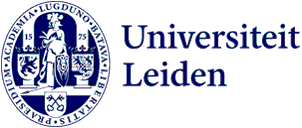
Claartje Levelt: ' Students sometimes ask questions I have to think hard about'
Claartje Levelt is professor of First Language Acquisition. She researches how babies and toddlers learn their mother tongue. Besides her work, she enjoys being involved with music.

Levelt divides her research into two subfields. 'First, I investigate what learning mechanisms babies have at their disposal to learn a language from within themselves. I want to know how they analyse language,' she explains. 'Another area of my research is with two-year-olds who are already talking. With these children, I investigate how speech production comes about: I want to find out how they learn to pronounce words. Their pronunciation often sounds different from ours, so I try to investigate how that comes about.'
Teaching in America
Levelt knew fairly early in her academic career that this was the field she wanted to work in. 'I wrote my thesis on child language development and it’s a subject I never tire of,' she jokes. After studying linguistics and gaining a PhD in Leiden, Levelt left for the other side of the world. She taught for about a year and a half at Rutgers University in New Jersey, USA. Levelt has very happy memories of this period in her life. 'There was a very pleasant research atmosphere and culture. Everyone was enormously open to people from outside. I was given a warm welcome and allowed to participate in everything,' she says. One of her favourite memories of her time in New Jersey were the many potluck dinners with colleagues. 'Everyone brought a small dish to the dinner.'
Levelt returned to the Netherlands after a year and a half. A short while later, she managed to secure a postdoc position at VU University Amsterdam, but that was short-lived. 'I really enjoyed it, but then Lisa Cheng suddenly called me to ask if I wanted to temporarily replace someone at Linguistics. I declined at first, as I already had a postdoc. As soon as I hung up, I thought: I just have to do this. Who knows, that person might not come back at all. So I called her back straight away, and accepted,' says Levelt. That turned out to be a good choice, because the other person indeed did not come back.
‘Can I also mention two things I enjoy most?’
Since then, Levelt has had various jobs within the faculty. Besides conducting research and teaching, she is also involved in administrative tasks, such as the programme committee, exam committee and the faculty council. It was quite difficult to make a choice.
'Can I also mention two of the things I enjoy most?' Levelt asks. 'I really love writing. For example, I wrote an application last year and I had time to do it properly. If you really have time for it, there’s nothing more delightful than writing. The hours fly simply by when you’re engrossed in something,' she says.
'But I also really enjoy teaching,' she adds. 'Students sometimes ask really good questions that I have to think hard about. Just now, for instance, I gave a lecture on language acquisition. In language acquisition, there is a kind of battle about how children learn language: nature versus nurture. Nature says that language is so complicated that babies must have an innate language system. Nurture, on the other hand, says language isn’t that complex and you don't need language-specific systems to learn it. Then a student asked for an example of how language wasn't as complex as you might think. That was a very good question, and I really had to think about it for a while,' she says.
Songbirds and babies
What Levelt doesn't have to think about is her favourite work memory. 'I’ve taken part
in some incredibly fun Lorentz workshops where I conducted interdisciplinary research with a great group of people at an enormously high level in a good atmosphere. I’ve done comparative research with biologists on songbirds, bats and babies. All these different species go through a period when they babble. It was fun to come to new insights together and write an interesting piece,' she says.
Musical hobbies
In her spare time, Levelt likes to be involved with music in one way or another. She has had piano lessons since she was seven. 'That's been 51 years of piano lessons, but I never stop learning. It's fun to keep learning,' she says. Two years ago, she decided to take singing lessons as well. 'I was already in a choir, but I wanted to gain better control of my voice.' Levelt says she initially found singing more personal than playing the piano. 'I found it challenging to sing in front of a teacher. I think it's because when you play the piano, you can make mistakes, but the notes you play are always true. You can sing out of tune, though. That was something new for me.'
In the line of trying out new things, Levelt hopes one day to write a book on language acquisition. 'But you have to have a lot of time for that. If I do it, I really want to devote all my time to it. I'll probably save that project for after I retire,' she concludes.
